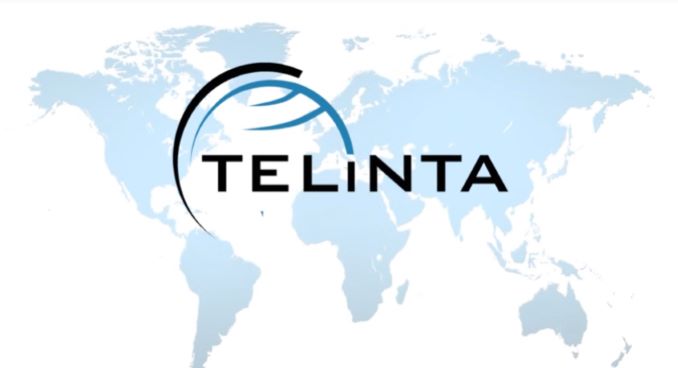Most progressive and forward-thinking companies employ advanced technologies when trying to find new ways to strengthen commercial relationships and reinforce their business processes to promote growth. In today’s global digital world, telephony has become much more than just communications – it promotes innovation, efficiency, flexibility and integration. While more and more companies are seeking to adopt modern, cost-effective communication technology such as VoIP (Voice over Internet protocol), the task of communicating with customers and taking care of their needs is often accomplished using advanced and high-tech CRM (customer relationship management) solutions. VoIP-CRM integrations allow cloud VoIP providers to connect their customer’s CRM accounts with the implemented business phone systems, and exchange data between the two platforms. Let’s analyze the benefits of CRM and phone system integration, and the smart communication models for business that offer the combination of VoIP and CRM. The concept of VoIP-CRM integration In general, CRM…
Motorola Solutions has announced the acquisition of Avtec Inc., the top U.S. provider of advanced dispatch products for public safety and commercial customers. Additional details of the transaction, which closed on the 11th of March, were not released. Based in South Carolina, Avtec specializes in voice over internet protocol (VoIP) dispatch services using land mobile radio (LMR) and broadband networks. The company offers solutions and products that enable customers, including airlines, railroads and energy companies, to connect their personnel in operations centers with workers in the field using two-way radios. Motorola Solutions, a global leader in mission-critical communications, has been reselling the Avtec consoles to its MOTOTRBO customers. Accordingly, such an acquisition will provide Motorola with a complete product portfolio for handling the communications that are vital to Digital Mobile Radio (DMR) users. Motorola currently offers its own MCC line of dispatch consoles to its Project 25 (P25)…
Vodafone Carrier Services, the division responsible for Vodafone’s global trading of voice, network connectivity and messaging services, has announced that the Voipfuture Qrystal solution will be used for monitoring the quality of the company’s end-to-end, IP-based voice network service. According to Voipfuture, their platform provides advanced voice quality analytics, reporting and troubleshooting by means of signaling and media metrics. The Qrystal platform acts as a passive monitoring system, and analyzes SIP and RTP traffic in real-time. This technology, patented by Voipfuture, uses fixed time slicing to deliver quality data in five-second units. Quality data is gathered and combined into different levels, thus providing accurate information to assess the quality of overall traffic as well as for single calls. Clive Goodwin, Head of International Voice Services at Vodafone, said, “We designed our Intelligent Routing platform to deliver High Definition voice (HD voice) services across a large number of countries…
VoIP has become an integral part of the day-to-day lives of many people throughout the world, offering a plethora of technological advancements and options, simplifying many communication processes and making interactions more convenient and consumer friendly. VoIP is one of the most talked-about technologies, and its prevalence is anticipated to grow in the upcoming years. Over the last twenty years, VoIP has provided businesses around the world with the convenience of increased mobility, due to constant development and emerging cutting-edge technologies. The usage of VoIP as a service has grown rapidly – between 1998 and 2002, VoIP carried only 1-3% of all voice calls worldwide, but in 2005, VoIP was responsible for more than 200 billion call minutes. With 2019 already underway, let’s have a look at what the future holds for the VoIP communications industry. In particular, we examine the insights and predictions regarding the trends and technologies that will…
The technical support team plays a critical role in a VoIP business, being the initial reference and contact point for customers experiencing technology-related issues. In addition, these important employees are responsible for analysing and resolving system failures and outages, product installation errors, user enquiries and any other technical problems that prevent customers from using an application or service. There is a wide and diverse range of possible technical issues that can occur, depending on the type of telecommunication services provided. Nevertheless, some of the most common VoIP connectivity concerns are audio quality, caller-ID problems, the dropping of calls, and post dialling delay (PDD). Studies reveal that passing on valuable technical advice or providing substantial assistance to customers is the number one method for telecom companies to improve the user experience for their products and services. At voip.review, we have summarised some relevant ideas for VoIP providers to…
US telecommunications companies Telinta, offering cloud-based, white label switching and billing solutions for VoIP service providers, and TextBetter, a provider of cloud-based business-texting services, have announced a joint initiative to deliver cooperative solutions for VoIP service providers. VoIP services such as hosted PBX, business and residential VoIP, and mobile connectivity accessible through Telinta’s cloud-based softswitch platform, can be integrated with this unique SMS solution. The white label solution from TextBetter makes it possible for any US phone number to send and receive SMS via email. TextBetter SMS services can be easily added to Telinta’s hosted softswitch platform, without the need to change the ownership of the DIDs. According to Telinta, “this powerful cloud-based combination of VoIP switching, billing, and SMS technology requires no software or hardware for service providers. TextBetter pairs the end user’s existing email with an associated phone number, so that SMS messages can be both…
Telecommunication industry, and especially the Voice over Internet Protocol (VoIP) technologies, are on a constant move and unceasingly generate new ideas and set evolutionary trends. If you are new in or just keen on VoIP, it is good to know someone, who can give valued opinion and helpful guidance. With this in mind, we have compiled a list of bloggers posting efficient VoIP content. These thought leaders are keeping their fingers on the pulse and provide updates and analysis on the latest innovations related to the telecoms world. Jon Arnold Jon Arnold is an independent research analyst focusing on unified communications, Internet of Things, cloud services, contact centers, SIP trunking, VoIP security and social media. Jon’s valued opinion and expertise can be followed on his widely-read Analyst 2.0 Blog, which has been recognized and awarded for the best tech reviews. According to Jon, his blog focuses on “trends that matter…
Job and project management company simPRO has launched a new VoIP phone solution for trade service businesses in New Zealand. The company believes that the new cost-effective integration will help increase employee productivity, expand service and reduce hardware dependency via the use of web phones. Jonathan Eastgate, simPRO Chief Technology Officer, believes that the VoIP phone integration will be beneficial to trade businesses looking to embrace the industry’s projected digital future. “When using simPRO, the VoIP will draw information to produce caller IDs and maintain call logs which can be viewed in a browser window – all you need is the internet and a headset,” he says. “VoIP provides a flexible, multi-functional solution that couldn’t be simpler to use. Without the need of a traditional telephone handset taking up space on the desk, users can make a call with a push of the mouse or keyboard and connect…
The global ridesharing and taxi company, Uber, has rolled out a new VoIP calling feature as another method for drivers and riders to communicate with each other. Similar to other VoIP communication applications such as Skype, this feature will require an Internet connection instead of a mobile voice service in order to make calls. Riders and drivers on Uber can already communicate by using in-app chats, sending SMS or making voice calls over their mobile service provider’s network. Yet VoIP calling caught Uber’s attention when the company noticed that in some countries, particularly when traveling abroad, data calling is cheaper than calling over a mobile voice network. Besides this new feature assisting the company to expand their services on a global scale, this advancement will be of great assistance to drivers, as they will be able to stay within the Uber app while handling voice calls. Moreover, the…













